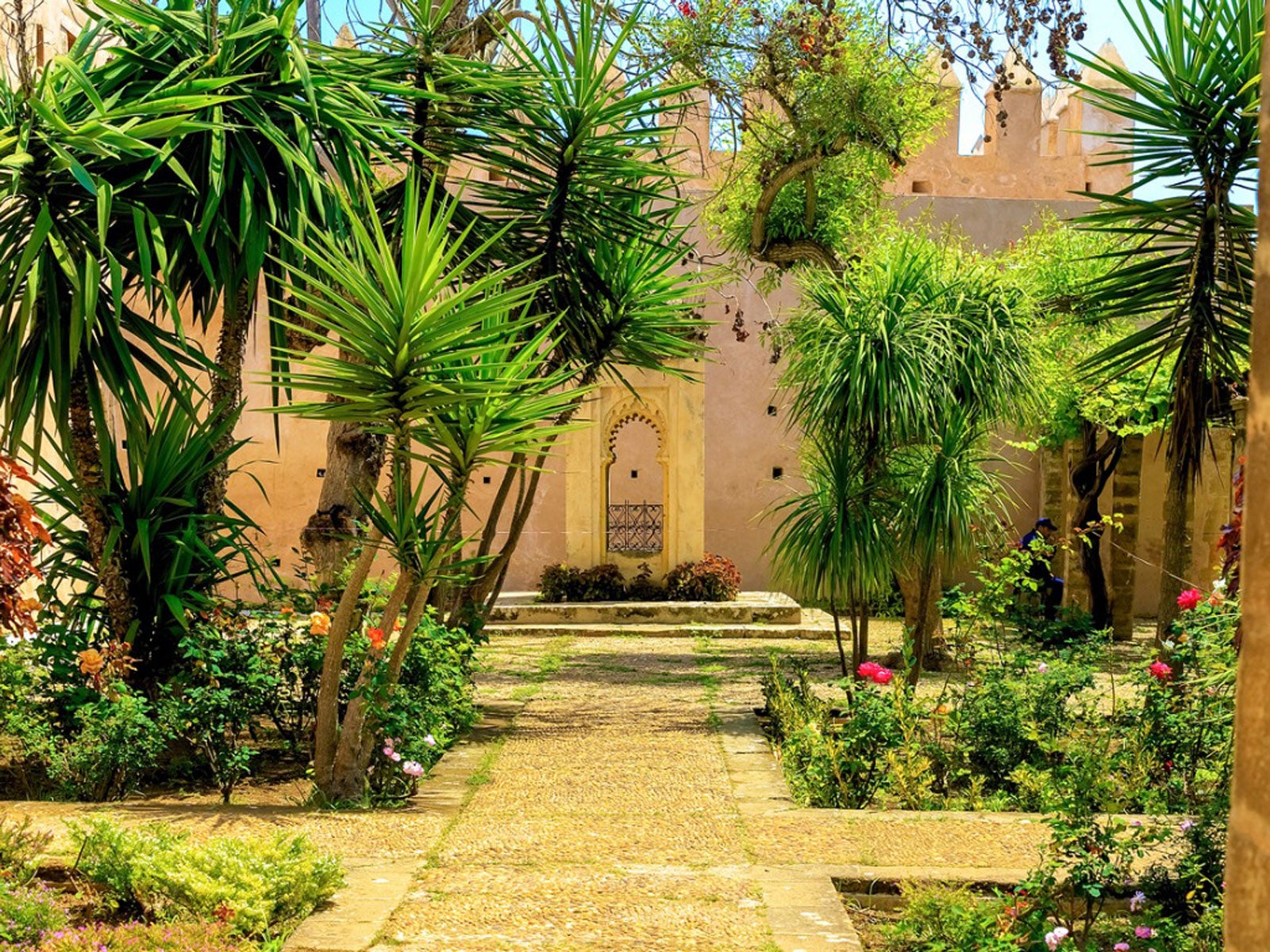Moroccan Style Garden: How To Design A Moroccan Garden


The Moroccan-style garden is influenced by centuries of outdoor use including Islamic, Moorish, and French inspirations. Courtyards are common, as persistent winds and high temperatures have necessitated them. Design usually begins with a water feature. Gardens in Morocco include heat-loving plants that are drought-tolerant.
These gardens, which are near the home or attached to it for protection from the elements, require tough plants that flourish in these conditions. They are often surrounded by a hedge to block winds and offer privacy. Many of these attached rooms provide afternoon shade. This type of garden is called a riad.
Plants for a Moroccan Garden
Plants for these centralized gardens provide a lush, tropical feel even though they’re friendly to their xeriscape location. Palms, aspidistra, and bird of paradise fit the bill here, as do many colorful succulents. Colorful containers, walls, and other accents abound when creating a Moroccan garden.
A U.S. succulent favorite, the aeonium, is native to the Canary Islands and grows abundantly in arid conditions. Cacti, agave, and aloes are included and are great choices for any waterwise planting area. The familiar geranium (Pelargonium) is used for flowing color in containers on the riad.
Citrus trees are often widely planted in the Moroccan garden. If you’re attempting to replicate such a garden in your landscape, plant one or more citrus specimens. If your outdoor climate gets too cold in winter, plant it in a rolling container and move it inside when temperatures fall.
How to Design a Moroccan Garden
Using the tips and suggestions above, plan your Moroccan garden design to fit your attached or enclosed space. Foliage plants and terra cotta pots are an integral part of the layout. Choose a bright color for walls that promotes what you desire from your personal riad, such as green or blue for relaxation or bright red to promote activity.
Birdcages, lanterns, jewel tones, and striped fabric or tiles laid out in a pattern are commonly used in these designs. An orderly layout of both plants and accessories is also common in traditional riads.
Sign up for the Gardening Know How newsletter today and receive a free copy of our e-book "How to Grow Delicious Tomatoes".
Add carved furniture pieces for a more authentic look. Customize your area as close to the original as possible, but don’t sacrifice your taste or comfort. Using just a few of these tips and tricks can provide you with an interesting Moroccan garden design.

Becca Badgett was a regular contributor to Gardening Know How for ten years. Co-author of the book How to Grow an EMERGENCY Garden, Becca specializes in succulent and cactus gardening.